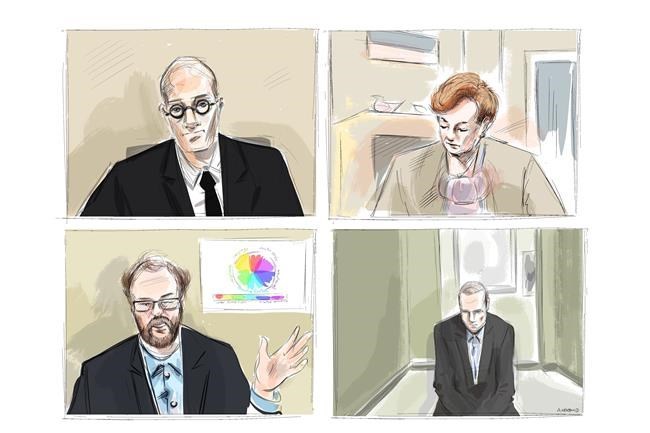TORONTO — A psychiatrist testifying for the defence of the man who killed 10 people in Toronto's van attack stopped short Wednesday of saying Alek Minassian should be found not criminally responsible for his actions.
Dr. Alexander Westphal said Minassian was incapable of "rational choice" at the moment of the attack on April 23, 2018, based on his irrational thoughts due to autism spectrum disorder.
But when asked directly by the prosecution if Minassian is not criminally responsible for what occurred, Westphal said he does not have the insight to make that determination.
"I think he didn't understand the moral wrongfulness of his actions, but that's not my determination to make," Westphal said under cross examination.
"I think it's a legal opinion, not a psychiatric one."
Minassian's defence lawyer previously told the judge-alone trial that Westphal, a psychiatrist practicing in the U.S., would be the only expert to say the 28-year-old is not criminally responsible for his actions that day.
Minassian has admitted to planning and carrying out the attack, leaving his state of mind the sole issue at play.
He has pleaded not guilty to 10 counts of first-degree murder and 16 of attempted murder, and has asked to be found not criminally responsible for his actions due to autism spectrum disorder.
Westphal, who specializes in autism, said Wednesday that he is not very familiar with the Canadian laws surrounding criminal responsibility.
Earlier, he explained that Minassian does not truly understand what he did was wrong, despite the young man telling the doctor repeatedly he did.
Minassian views people as objects and does not comprehend the devastation of his actions, Westphal said.
"It just doesn't matter to him because he doesn't understand that ... because he has a really substantial defect in social development and a defect in empathic understanding of other people, that there is real human consequences, relatable human consequences to his actions," he said.
Crown attorney Joe Callaghan pointed out that Minassian told Westphal numerous times he understood killing people was morally wrong.
"I certainly have committed the act of murder and there isn't any moral justification for it so, for the public eye, it would be extremely upsetting and immoral," Minassian told Westphal, according to a transcript read in court.
Minassian also told Westphal he'd consider carrying out the attack again if he were let out of jail to better his "kill count."
Westphal said Minassian, due to his autism spectrum disorder, did not develop what's called "theory of mind" – the ability to understand that other people have their own way of thinking, their own beliefs, feelings and desires.
"To not recognize that, to see people as objects in the way that Mr. Minsassian clearly did, to me, reflects a very substantial breakdown of this entire process," Westphal said.
Minassian was heavily influenced by horrific material he consumed online, including a focus on a website that ranked mass murderers by "kill counts," akin to a leaderboard in video games or sports, Westphal said. Minassian was also drawn to the notoriety other mass killers had, Westphal said.
Westphal said there is no good explanation from Minassian about why he committed the attack.
Court has previously heard that Westphal found Minassian was not psychotic but had an autistic way of thinking that was "severely distorted in a way similar to psychosis."
This report by The Canadian Press was first published Dec. 2, 2020.
Liam Casey, The Canadian Press



